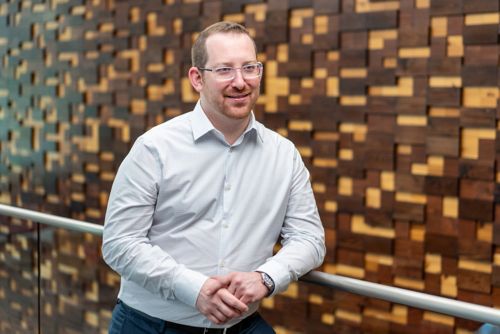About this study
Tumors of the brain and spine in very young children are hard to treat. They are usually treated with surgery, chemotherapy, and radiation. Some of these tumors have changes in genes or proteins (called mutations).
This study will test whether the drug entrectinib will work against high-grade gliomas and other central nervous system tumors that have genetic changes called NTRK or ROS1 fusions. Patients will have imaging scans to see how the tumor responds to the drug. The length of treatment on this study is 5 years.
About NTRK fusion genetic changes
NTRK (neurotrophic tyrosine receptor kinase) fusion genetic changes happen when an NTRK gene joins with another gene. This creates a fusion protein that sends signals for cells to grow uncontrollably, leading to tumor formation. These fusions can occur in different types of cancers, including brain and spinal cord tumors in children.
Entrectinib is designed to block the abnormal signals from NTRK fusions, which may help stop or slow tumor growth.
About ROS1 fusion genetic changes
ROS1 fusion genetic changes occur when the ROS1 gene fuses with another gene, creating a protein that can drive cancer growth. This type of mutation is found in some brain and spinal tumors, as well as other cancers.
Entrectinib works by targeting ROS1 fusion proteins, potentially stopping tumor growth and improving outcomes for children with these genetic changes.
Eligibility overview
- Birth–3 years old
- Newly diagnosed brain tumor that has the NTRK or ROS1 mutation
- No previous cancer therapy

